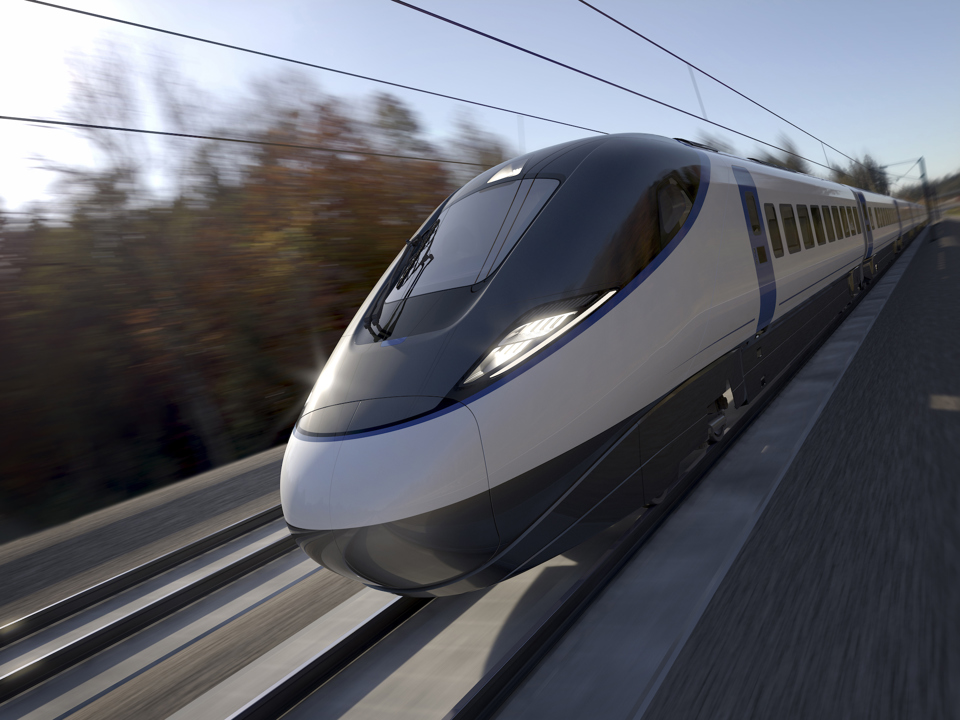The cancellation of Phase 2 of HS2 to Manchester could cost £100m and take three years to complete. Estimates by HS2 Ltd have emerged in the latest update report on the high speed line from the National Audit Office (NAO). The northern leg of HS2 was scrapped by Rishi Sunak last October.
The NAO report maintained that although there has been no major construction work so far, some enabling works, including investigative boreholes and utility diversions had started. HS2 Ltd has an obligation to maintain and then reinstate land to its original state.
The cancellation of Phase 2 of HS2 to Manchester could cost £100m and take three years to complete. Estimates by HS2 Ltd have emerged in the latest update report on the high speed line from the National Audit Office (NAO). The northern leg of HS2 was scrapped by Rishi Sunak last October.
The NAO report maintained that although there has been no major construction work so far, some enabling works, including investigative boreholes and utility diversions had started. HS2 Ltd has an obligation to maintain and then reinstate land to its original state.
The report also suggested that HS2 has spent £592m buying up land and around 1000 properties will no longer be needed. Disposing of the land and property, the report said, “will take several years and that the Department for Transport (DfT) is in the process of establishing a strategy to achieve value for money from the disposals.”
DfT and HS2 have differing views, according to the report, on how much it will cost to complete Phase 1 of the line from London to Birmingham. Prior to October 2023, HS2 Ltd had estimated the total cost would be between £49bn to £57bn (at 2019 prices), while the DfT estimated a cost of £45bn to £54bn. Both estimates, the report noted, are above the current funding envelope of £44.6bn.
The report stated that DfT and HS2 were now developing plans to address the issues that have led to “significant cost increases”. It added that in September 2023, HS2 Ltd estimated that the forecast cost of the main civil construction had increased by £6bn since 2020. HS2 Ltd has blamed external events, including COVID, and its reduction plan includes renegotiation of the four main construction contracts to better incentivise cost control.
The NAO report also expressed concerns about the benefits of HS2. Current stated passenger benefits, including more seats on the route and environmental and economic benefits. However, the report suggests that the decision to scrap the northern leg to Manchester had reduced the scale of the benefits and that the DfT was not yet clear of how to maximise the benefits of the truncated scheme.
Another major issue for NAO was that the DfT would not be able to address capacity issues on the West Coast Main Line, north of Birmingham, through its revised programme. The report said: “DfT plans for HS2 trains to run from the Phase 1 track onto the West Coast Main Line in place of conventional trains, but the trains will have fewer seats than existing services unless changes are made to existing infrastructure and stations to accommodate longer trains”
It added that “HS2 services that will run north of Birmingham will not resolve capacity issues on that section, and DfT estimates that the line could reach capacity by the mid-2030s” HS2 was originally designed to provide additional capacity on the West Coast Main Line for freight and other services.
On continuing issues at Euston, the report, stated that “DfT’s plans for resetting Euston station and surrounding wider development are at an early stage; it has not yet decided on its scope, funding, or governance.” The NAO report suggested that the DfT expects it may be several years before it could put all these arrangements in place.”
Commenting on the report, a spokesperson on for the High Speed Rail Group said: “It makes clear the plan the incoming Labour government is inheriting – a truncated HS2, and a West Coast Main Line operating at capacity - is not going to help grow the national economy, nor is it going to allow train performance on the West Coast to return to acceptable levels. The group added: “A line which fails to reach central London, and which worsens the bottleneck north of Birmingham is an inheritance that needs amendment.”
Meanwhile, Railway Industry Association (RIA) Chief Executive, Darren Caplan, said: “RIA has consistently argued in the past that to get the full benefits of HS2 investment you ultimately need to build the full scheme. With large parts of the planned HS2 scheme scrapped, the problems of a lack of current and future capacity on the UK’s north-south railway corridors remains.”
“Delivering the route into central London - without delay - is crucial to avoid changing HS2 from what is supposed to be a strategic piece of national infrastructure into an Acton to Aston line. So, getting the right station design at Euston is the next urgent step if we are to get value from all the investment already made.”
In its conclusion the NAO report said: “While HS2 is now a smaller programme, it remains by any measure an extremely large and complex endeavour, and DfT and HS2 Ltd need to reset the programme successfully to avoid repeating past failures and maximise its value.”
The Department for Transport has not commented on the report but, the new Transport Secretary, Louise Haigh MP said on X (formally Twitter), “The Tories recklessly mismanaged HS2 and allowed the costs to spiral out of control. This report lays bare the sheer scale of Conservative incompetence. We won’t make the same mistakes. We’re assessing the books and will set out next steps in due course.”
Meanwhile HS2 Ltd said in a statement that: “This is a project of unprecedented scale and complexity, and the cancellation of Phase 2 has increased our cost challenges.
We are now making sweeping reforms to control costs better and deliver the next stage of the programme – passing peak construction between London and the West Midlands and starting the transition to a working railway.”
Login to continue reading
Or register with RAIL to keep up-to-date with the latest news, insight and opinion.



















Isabel White - 02/08/2024 14:35
How to add capacity to the West Coast mainline without spending a fortune? Simples! Reopen the Midland mainline between Matlock and Chapel en le Frith, route all freight and some slow moving passenger traffic to that route and leave the West Coast mainline for fast traffic. Cost - less than £100 million.